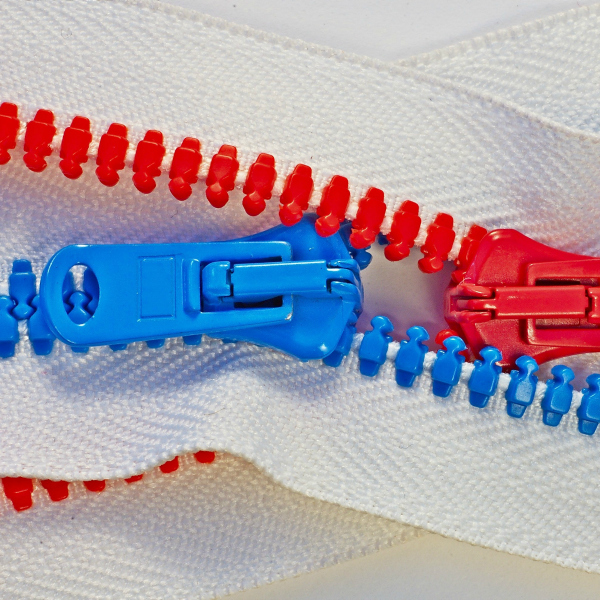
Zip it! Three Things I Don’t Want To Hear When I Screw Up
I’m pretty sure that the same things I don’t want to hear when I screw up are the very things you hate hearing, too. Like me, you’re human. Humans screw up. That’s what we do sometimes. Yes, that means you. You mess up. So do your kids.
I’m talking mainly about those times when I know I’ve screwed up, and I’m admitting it to you. In that moment where I’m at the peak of vulnerability, I’m already down. No additional kicking needed. At those times in particular, there are a few things anyone who loves me shouldn’t say.
The very things I don’t want to hear are the very things I should avoid saying to my teenagers when they screw up. But let’s be honest. I say them sometimes. I don’t say them to my closest friend, but yeah, I’m guilty. I’ve said these things to my teen sons.
I want to change and grow. And I want to build my relationship with my teens, not tear it down. So I’m reminding myself how I want to be treated when I screw up. I thought I’d share this in case it’s helpful for other parents with teens.
Don’t say “Why did you do that?”

There are two reasons that “Why?” this is one of the worst things you can ask me when I mess up.
I don’t know why I did that!
I don’t know why I do dumb things. And if I do, I’m probably not ready to admit it. When my screw up is fresh and raw, I don’t have a good answer as to why I did it. Sure, I can come up with a massive rationalization that sounds logical in my brain. I tell you what someone else did to provoke my bad behavior. I make lots of excuses. But in order to truthfully articulate the honest reasons for my actions, I need processing time. And I need a little gentleness while I unpack my actions or words and understand why I did what I did. Only then can I learn from it and avoid the same mistake in the future. And frankly it’s hard to think straight when there’s a Kraken on the loose.
Asking “why” makes me feel judged.
When you ask “Why’d you do that?”, I feel immediately judged. The story I tell myself is that what you’re saying is that you would never have done the same thing. That you’re somehow “above” this type of mistake. What I hear is that you can’t relate to me at all. It puts distance between me and you, and I am far less likely to come to you next time with an honest admission of a screwup. Who wants to confess to someone who can’t relate?
The Power of “Me, Too.”

If you want to be helpful, say something like, “Man, I’ve done that, too.” Or “I can relate to how you must be feeling.” Or “You’re not the first person to make this mistake, and you won’t be the last.” Or just say, “Man, that sucks. You must feel awful.” Say SOMETHING to help me feel normal and less alone than I do in the wake of a major screw up.
On the other hand, if you do in fact want to punish me for my screw up and make me feel worse, then by all means, ask me why I did what I did. But don’t expect a helpful answer, because I won’t have one at that moment.
Don’t say, “I knew this would happen.”
If you love me at all, keep your predictions to yourself, Nostradamus. Come on, that’s just mean. Even if you thought that I would screw up because I have a pattern of making this mistake in the past, don’t say it out loud, unless you want me to feel worse than I already do.
When I make a mistake, I’ve already beat myself up worse than you ever could. I remember all the times I’ve made the same mistake. I doubt my ability to ever get past my tendency to behave badly over and over again. So the last thing I need from you, especially if you’re someone who claims to be in my corner is to say you knew I’d screw up.
And please don’t start listing all the times I’ve done this same thing in the past. I know that. I have an inventory of past screwups that’s longer than you could ever remember. I wear it on my conscience like a chain. I’ve already berated myself with my laundry list of past failures on my way to confess to you what I did.
The Power of, “That must be hard.”

If my mistake was a transgression against you and that creates problems for you and I’m admitting it to you, start with, “Thanks for being honest.” Or “Thanks for telling me.”
Saying “that must be hard”, “thanks for being honest” or “thanks for telling me” diffuses my anger, defensiveness and pride. It opens up a channel for dialogue about how we move forward. If your goal is continued relationship with me, try these.
On the other hand, if your goal is to make me feel worse and alienate me, then by all means, tell me you knew I was going to screw up.
Don’t say, “I told you so.”
The only thing I need less than a Nostradamus whose psychic powers predicted my mistake is a Know It All. Even if you did tell me so, please for the love of all things holy, don’t say it out loud. It may make you feel better for a moment, but it will make me feel worse for a lot longer. And it will reduce the chances that I’ll open up to you again the next time I mess up. I’m far less likely to ask advice from a Know It All.
The power of a question.

- “What’s your next step?”
- “What can you do to make it right?”
- “How would you feel if you were me?”
- “What are you going to do about that?”
- “What’s a possible solution to your problem?”
- “What can I do to help?”
Why does this matter?

When our teenagers screw up, we feel anger, disappointment, hurt and fear. If we can pause before responding, we can give ourselves the time we need to focus our attention on the bigger goal: to stay connected to our teens, to help them learn from their mistakes, to maintain their trust in and relationship with us.
We have an opportunity here if we choose to take it. The way we respond as a parent when our teen screws up can be a huge relationship builder instead of a relationship wrecker.
Our goal as parents is to stay connected to our teenagers. Acting from a place of vulnerability, grace and love builds relationship. Acting from a place of self-righteousness, anger and judgment damages relationship.

This is super, super hard. I get this wrong. A lot. But I’m getting better. And I’ll bet I will get another chance to practice tomorrow, or maybe even later today. We’re all in this together, folks.

Recent Comments